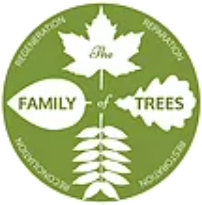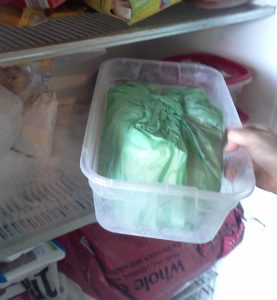 I was at an earth day event last week and most people were familiar with the concept of organics recycling (or composting), but didn’t know where to start. I have often thought that a good way to introduce the idea of organics recycling to my neighbors would be to show up at their door with a compostable bag and offer to clean out their refrigerator. What’s in your Fridge? You may be surprised …. moldy cheese and that chicken casserole you forgot about, all can be recycled and processed at a commercial composting facility. I love the thought of all the that leftover food waste mixed with wood chips and eventually turning into beautiful, nutrient rich, dark soil or compost and used as mulch around plants and gardens.
I was at an earth day event last week and most people were familiar with the concept of organics recycling (or composting), but didn’t know where to start. I have often thought that a good way to introduce the idea of organics recycling to my neighbors would be to show up at their door with a compostable bag and offer to clean out their refrigerator. What’s in your Fridge? You may be surprised …. moldy cheese and that chicken casserole you forgot about, all can be recycled and processed at a commercial composting facility. I love the thought of all the that leftover food waste mixed with wood chips and eventually turning into beautiful, nutrient rich, dark soil or compost and used as mulch around plants and gardens.
Here are three easy steps to recycle organics:
 Determine your recycling method before you start collecting any organics, because it will determine what you can collect and where to store it. There are several ways to recycle organics in the Twin Cities metropolitan area. Residential/curbside collection and county yard waste sites offer commercial processing. Other options include backyard composting or worm composting indoors (read more on worm composting). The options available will depend on where you live. Your county/city/neighborhood website has the specific information for your community. In general, commercial compost sites (residential/curbside or county yard waste sites) accept all meat, bones, eggshells, dairy, fruits, vegetables, and food stained paper. Home compost bins are limited to fruits and vegetables.
Determine your recycling method before you start collecting any organics, because it will determine what you can collect and where to store it. There are several ways to recycle organics in the Twin Cities metropolitan area. Residential/curbside collection and county yard waste sites offer commercial processing. Other options include backyard composting or worm composting indoors (read more on worm composting). The options available will depend on where you live. Your county/city/neighborhood website has the specific information for your community. In general, commercial compost sites (residential/curbside or county yard waste sites) accept all meat, bones, eggshells, dairy, fruits, vegetables, and food stained paper. Home compost bins are limited to fruits and vegetables.
- Set up a collection and storage system that works for you. It is helpful to remember that the contents of the organic waste you are collecting and storing is not any different than what you are used to throwing in the garbage can. It is just stored separately. The organic waste will not smell any worse (or better!) than your garbage can does now. It will need to be emptied just as often.
- Backyard composting: Find a container (an old ice cream pail or plastic container with a lid; punch some small holes in the lid for air circulation) to collect all vegetable and fruit scraps, coffee grounds/tea for your backyard compost bin. Ideally, look for a container that is a convenient size for your kitchen counter, has air circulation but will not allow access for fruit flies, and a secure latch on the lid. For more on backyard composting, read this Green Living Article.
- County yard waste sites: I started organics recycling several years ago by wrapping all my vegetable peelings and other food waste in newspaper, and storing it in the freezer or in an outside container until my next trip to the county yard waste site. In the spring I separate my fruit and vegetable scraps for backyard composting from the food waste I take to the yard waste site. I keep my vegetable and fruit scraps in a plastic container on the counter for my backyard composting.
- Recently I started using a juice pitcher lined with a small compostable bag (from yard waste site) for my chicken bones, egg shells, cheese, fish and leftover food. I just twist the bag closed and store in the refrigerator. After it’s full I move it to a container outside until the next yard waste site trip. Organics recycling also accepts food soiled paper products, including plates, napkins, towels, pizza boxes and tissues. I now use my tall kitchen trash container (lined with a paper bag) to collect these items and a small container for the “true trash.”
- Residential/Curbside: To collect food waste for commercial composting, as in smelly fish and leftover food, you will need certified compostable plastic bags or paper bags. The compostable plastic bags must have the BPI logo on them to be accepted. They are available at local food coops and online. If you live in Ramsey County, the yard waste sites with organics recycling provide them to residents.
-
 Send the organic waste on to its next life! Backyard and curbside options are as simple as carrying out the garbage on the correct day or as needed. Delivery to a yard waste site takes a little more planning.Make it a fun event! Our dogs are very happy that we don’t have curbside organics recycling yet where we live because we make trips to the yard waste site a family adventure with stops to our CSA and the Otter Tail Lake Dog Park. The friendly waste site attendants always have treats for the dogs! As I load up my 3-5 bags of organics in my car I have such a feeling of accomplishment! Now I would just like to share this fun with all my neighbors. If you hear the doorbell and see a woman with a green compostable bag in her hand, you’ll know that it’s me.
Send the organic waste on to its next life! Backyard and curbside options are as simple as carrying out the garbage on the correct day or as needed. Delivery to a yard waste site takes a little more planning.Make it a fun event! Our dogs are very happy that we don’t have curbside organics recycling yet where we live because we make trips to the yard waste site a family adventure with stops to our CSA and the Otter Tail Lake Dog Park. The friendly waste site attendants always have treats for the dogs! As I load up my 3-5 bags of organics in my car I have such a feeling of accomplishment! Now I would just like to share this fun with all my neighbors. If you hear the doorbell and see a woman with a green compostable bag in her hand, you’ll know that it’s me.

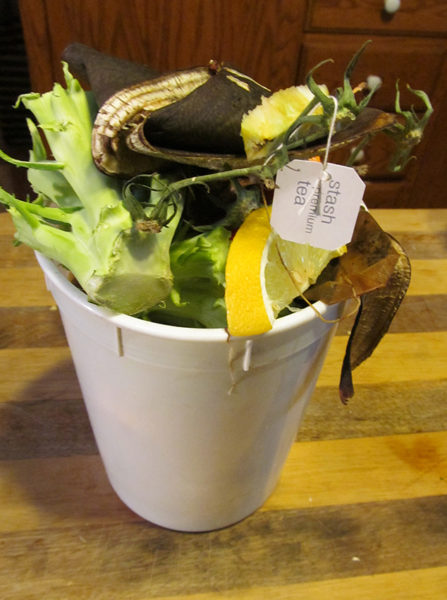
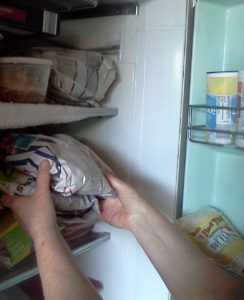 Determine your recycling method before you start collecting any organics, because it will determine what you can collect and where to store it. There are several ways to recycle organics in the Twin Cities metropolitan area. Residential/curbside collection and county yard waste sites offer commercial processing. Other options include backyard composting or worm composting indoors (read more on
Determine your recycling method before you start collecting any organics, because it will determine what you can collect and where to store it. There are several ways to recycle organics in the Twin Cities metropolitan area. Residential/curbside collection and county yard waste sites offer commercial processing. Other options include backyard composting or worm composting indoors (read more on 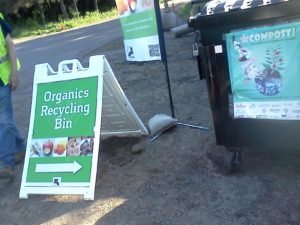 Send the organic waste on to its next life!
Send the organic waste on to its next life! 




